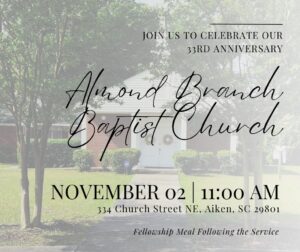
If you’ve ever forgotten a bag of potatoes in the back of a dark pantry, you know that time doesn’t make them better—it makes them toxic. At first, there’s just a faint, earthy musk. But eventually, the rot sets in. The smell becomes an all-encompassing stench that leeches into everything else in the kitchen. You can’t just shut the door and hope it goes away; the longer they stay, the more they liquefy and ruin the shelves they sit on. To save the pantry, you have to reach into the dark, grab the mess, and throw it completely out of the house.
Paul tells us that things like greed, malice, and slander are the ‘rotten potatoes’ of the soul. We think we can just ignore them or hide them behind a closed door, but they are actively decaying our character and our community. Verse 5 doesn’t say ‘rearrange’ the earthly nature; it says ‘put it to death.’ It’s time to clear the pantry.
Christ is the center, the circumference, and the very air we breathe. It is an invitation to stop managing our old selves and start inhabiting the new humanity God is crafting within us.
NOTE: This is the “Therefore” based upon Colossians 3:1-4
Colossians 3:1-4 NIV Since, then, you have been raised with Christ, set your hearts on things above, where Christ is, seated at the right hand of God. 2 Set your minds on things above, not on earthly things. 3 For you died, and your life is now hidden with Christ in God. 4 When Christ, who is your life, appears, then you also will appear with him in glory.
The Message
COLOSSIANS 3:5–11 (NIV)Theme: The Great Exchange—Stripping the Old to Embody the New
Verses 5–7 —The Execution of the Old NatureColossians 3:5–7 (NIV)
5 Put to death, therefore, whatever belongs to your earthly nature: sexual immorality, impurity, lust, evil desires and greed, which is idolatry. 6 Because of these, the wrath of God is coming. 7 You used to walk in these ways, in the life you once lived.
Cross References
- Romans 8:13 – “For if you live according to the flesh, you will die; but if by the Spirit you put to death the misdeeds of the body, you will live.”
- 1 Corinthians 6:11 – “And that is what some of you were. But you were washed, you were sanctified…”
Why We Struggle We often try to “manage” our shadow side rather than eliminate its influence. We treat toxic habits as minor flaws rather than destructive forces that compete for the throne of our hearts.
Integrated Truth Because we are raised with Christ (v. 1), we have the authority to execute the habits that no longer fit our new identity. Killing the “earthly nature” isn’t legalism; it’s clearing out the rot to make room for the life God intended.
Know This
- You cannot negotiate with what is meant to be executed.
- Greed is not just a habit; it is a displacement of God (idolatry).
Response of the Believer
- Identify specific “earthly” patterns and name them honestly.
- Refuse to entertain desires that contradict your new life.
- Walk in gratitude for the “past tense” of your former lifestyle.
Verse 8 — Stripping Away Social Sins Colossians 3:8 (NIV)
8 But now you must also rid yourselves of all such things as these: anger, rage, malice, slander, and filthy language from your lips.
Cross References
- James 1:21 – “Therefore, get rid of all moral filth and the evil that is so prevalent…”
- Ephesians 4:31 – “Get rid of all bitterness, rage and anger, brawling and slander…”
Why We Struggle While we might avoid “big” sins, we often tolerate “respectable” sins like simmering anger or sharp words. We underestimate how much our speech affects our spiritual health and our community.
Integrated Truth The “clothing” of our character must match our new spirit. Slander and malice are like wearing dirty rags over a tuxedo; they are fundamentally incompatible with who you have become in Christ.
Know This
- The tongue reveals the state of the heart.
- Spiritual maturity is visible in how we handle conflict and conversation.
Response of the Believer
- Audit your speech for traces of malice or “filthy language.”
- Choose silence over slander.
- Invite the Holy Spirit to cool the “rage” before it reaches your lips.
Verses 9–10 — The Process of Restoration Colossians 3:9–10 (NIV)
9 Do not lie to each other, since you have taken off your old self with its practices 10 and have put on the new self, which is being renewed in knowledge in the image of its Creator.
Cross References
- Genesis 1:27 – “So God created mankind in his own image…”
- 2 Corinthians 3:18 – “…are being transformed into his image with ever-increasing glory.”
Why We Struggle We find it hard to be authentic. We hide our true selves behind lies because we fear the “new self” isn’t enough, or we get frustrated that the “renewal” process takes time.
Integrated Truth Transformation is both a “done deal” (you have put on the new self) and an ongoing process (which is being renewed). We are being restored to the original “Image of God” that was marred by the fall.
Know This
- Honesty is the baseline for Christian community.
- Growth is the restoration of God’s original design for your life.
Response of the Believer
- Commit to total transparency with fellow believers.
- View life as a classroom where you are learning to look like Jesus.
- Trust the Creator to finish the work of renewal in you.
Verse 11 — The New Humanity Colossians 3:11 (NIV)
11 Here there is no Gentile or Jew, circumcised or uncircumcised, barbarian, Scythian, slave or free, but Christ is all, and is in all.
Cross References
- Galatians 3:28 – “There is neither Jew nor Gentile… for you are all one in Christ Jesus.”
- Ephesians 2:14 – “For he himself is our peace, who has made the two groups one…”
Why We Struggle Humanity is prone to tribalism. We use race, social status, and religious background to build walls of superiority or exclusion, even within the church.
Integrated Truth In the “New Self” economy, Christ is the only metric that matters. He is the ultimate equalizer and unifier. When Christ is “all,” our secondary differences lose their power to divide.
Know This
- The Gospel is the death of elitism and the birth of true community.
- If Christ is in your brother or sister, they are your equal.
Response of the Believer
- Actively dismantle prejudices based on status or background.
- Seek unity with those who are culturally different from you.
- Center every relationship on the shared presence of Christ.
THEOLOGICAL SUMMARY
Colossians 3:5–11 teaches that:
- The Christian life requires a “strip and equip” mentality—discarding the old to embrace the new.
- Holiness involves both private purity (v. 5) and public integrity (v. 8).
- Transformation is a journey of being restored to the Image of God.
- The Gospel creates a new humanity where social and ethnic barriers are abolished.
What to Understand
- Sin is fundamentally “idolatry”—replacing God with self-desire.
- Transformation is an ongoing “renewal in knowledge.”
- Your new identity is corporate; it binds you to the whole body of Christ.
What to Feel
- Resolve to deal with sin decisively rather than passively.
- Humility regarding your past and your need for daily renewal.
- Inclusivity toward all members of God’s family.
What to Do
- “Kill” a specific habit this week that belongs to the “earthly nature.”
- Correct a lie or a piece of slander with the truth and an apology.
- Intentionally engage with someone outside your “social circle” in your community.
KEY TAKEAWAYS
- You cannot live the new life while wearing the old nature.
- What you say reveals who you are becoming.
- Renewal is the path back to the Image of God.
- Christ is the only identity that truly defines us.




